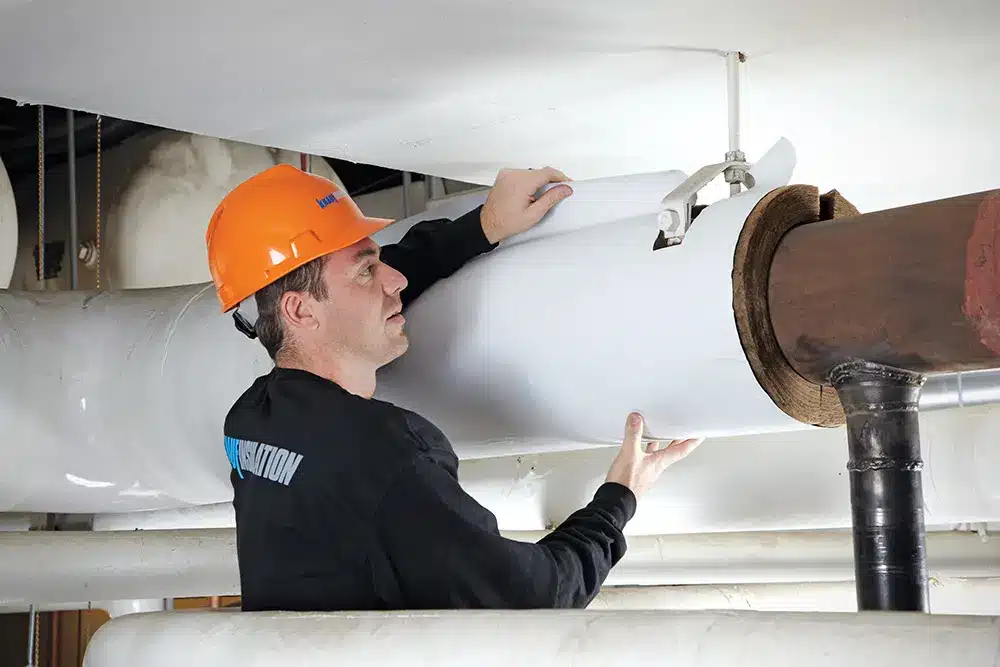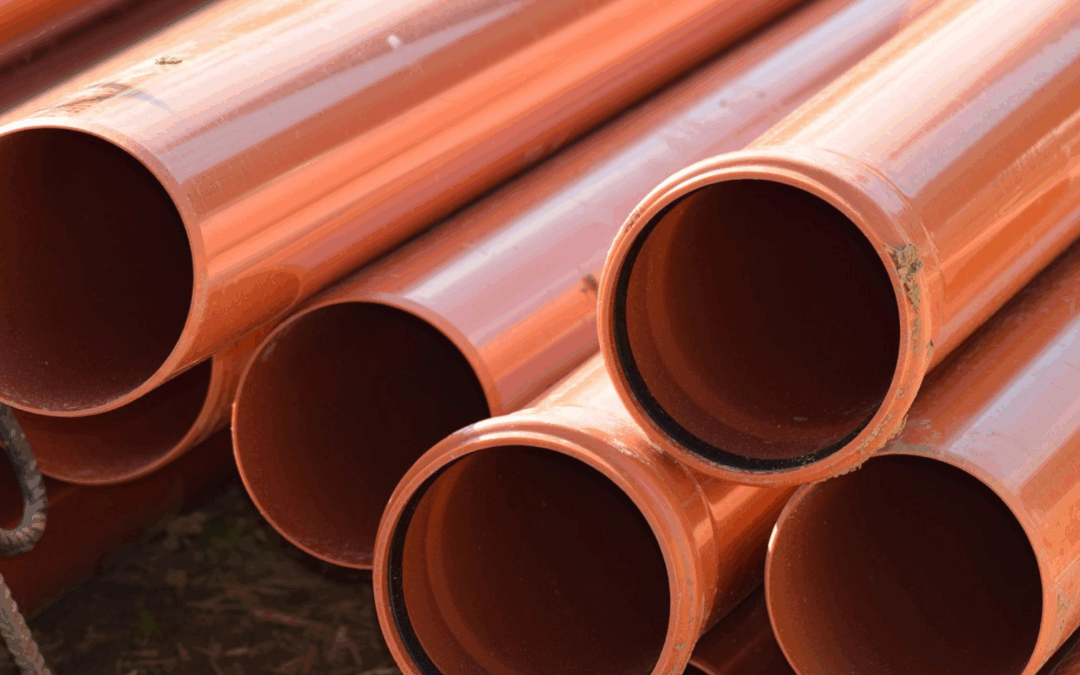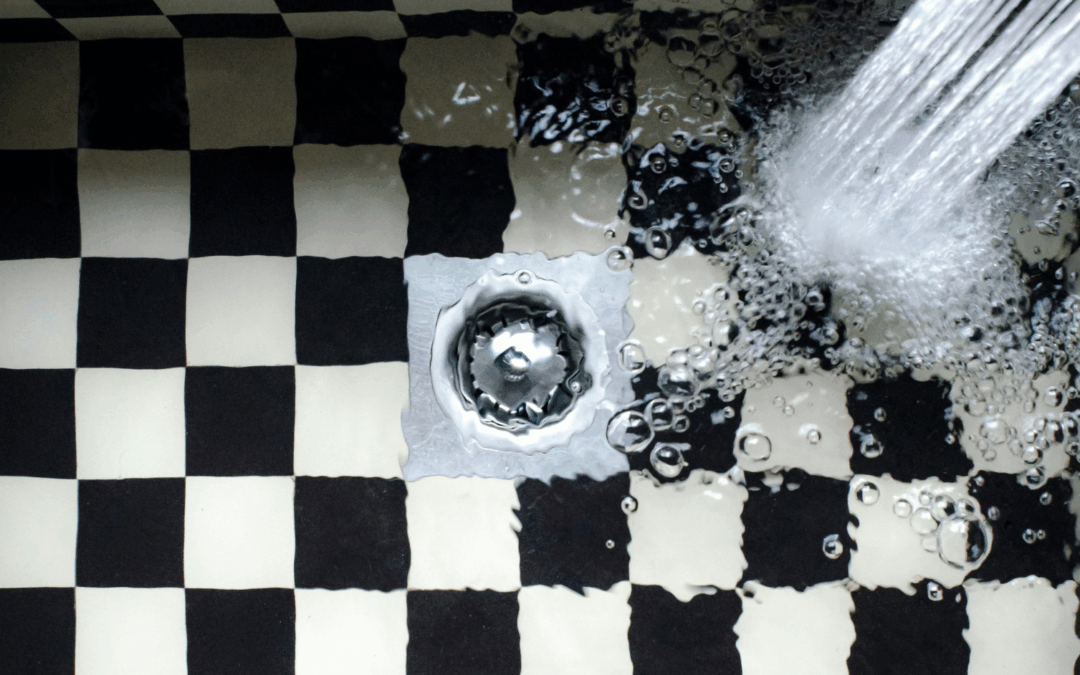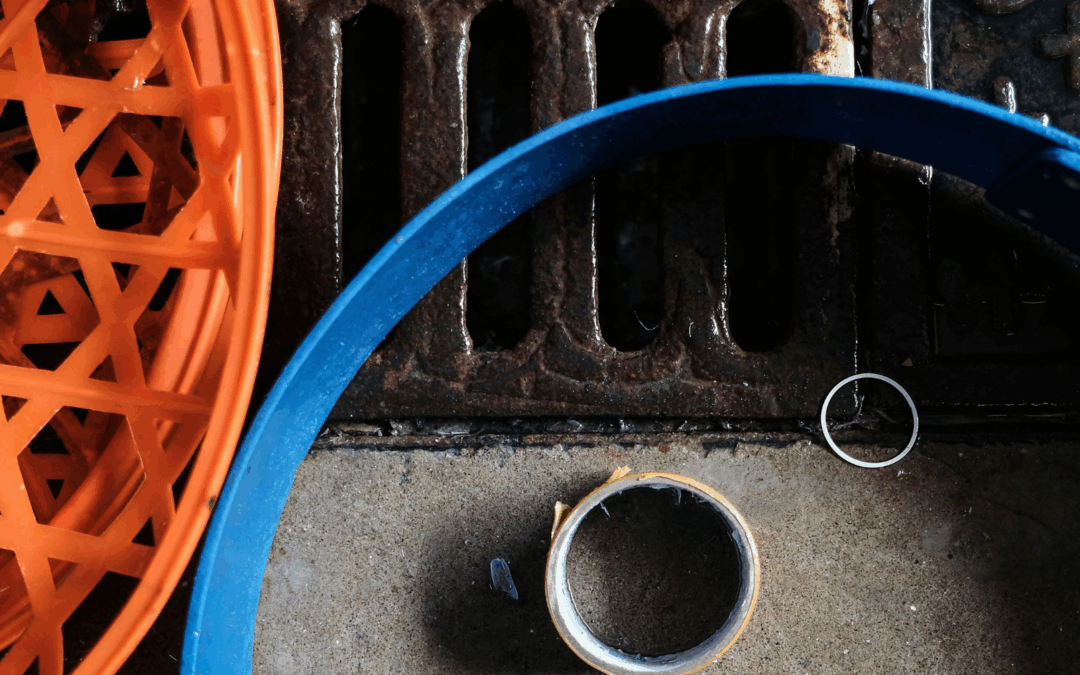As the weather becomes colder, the importance of keeping your pipes warm cannot be overstated. One way to do so is through pipe insulation. Not only does it prevent the pipes from freezing, but it can also save you money on energy costs by reducing heat loss. In this blog post, we will discuss the benefits of pipe insulation, the types of insulation available, as well as tips on how to install it yourself.
Benefits of Pipe Insulation
One of the most significant benefits of pipe insulation is its ability to prevent pipes from freezing. Frozen pipes can cause significant water damage and can even burst, leading to costly repairs. Insulation helps maintain a consistent temperature, making it an effective way to avoid frozen pipes.
Additionally, insulation can save you money on energy costs by reducing heat loss. Without insulation, pipes can lose heat, making the water heater work harder to maintain a consistent temperature. Insulation keeps the water hot, reducing the need for the water heater to work as hard. This also means you can potentially reduce the size of the water heater or extend the lifespan of the existing one.
Schedule Service Online
Get a free estimate so you know what you're signing up for
"*" indicates required fields
For Emergency Services Call: 410-255-9300
Types of Insulation
There are several types of insulation available for pipes, such as fiberglass, foam, and reflective. Fiberglass is a traditional type of insulation that is cost-effective and easy to install. Foam insulation is more expensive but is also more effective at retaining heat. Reflective insulation is a type of insulation that uses foil to reflect heat back to the source and is typically used for outdoor pipes.
Installing Pipe Insulation
One of the most attractive things about pipe insulation is that it is relatively easy to install yourself. You can purchase pre-cut foam pipe insulation sections that fit over the pipes, or you can purchase rolls of chilled water piping insulation and cut it to size. To install, simply slide the insulation over the pipe and seal any gaps with duct tape or zip ties. It’s best to start at the water heater and work your way out to ensure all pipes are covered.
Additional Tips
When installing insulation on outdoor pipes, be sure to use a weather-resistant material and a vapor barrier. In addition, it’s essential to check the insulation periodically for signs of wear or damage. If you notice any wear or damage, repair or replace it immediately to ensure that it’s doing its job properly.
Finally, if you’re unsure of how to install insulation or don’t have the time, it’s best to hire a professional plumber to get the job done right.
The Importance of Hiring a Professional for Pipe Insulation
As a homeowner, you might be tempted to DIY when it comes to home repairs. And while some jobs are perfectly fine to tackle on your own, you should think twice when it comes to pipe insulation. Pipe insulation is a critical element of a safe and efficient home, as it helps keep pipes from freezing or bursting and reduces energy consumption. Next, we’ll discuss why you should hire a professional to do pipe insulation and the benefits of doing so.
Safety First
Installing pipe insulation can be dangerous without proper knowledge and experience. Without the correct training, you might not know how to properly handle materials or tools, which can result in accidents, injuries, or even fatalities. Professional pipe insulators have the knowledge and expertise to avoid risks and ensure the job is done safely. Moreover, pipes that contain hazardous materials like asbestos or lead, should be handled by professionals as they have the necessary equipment to handle these safely.
Quality Work
A professional pipe insulation contractor has the necessary expertise to install insulation with the utmost care and precision. They know how to properly choose the insulation material based on the piping system and environment, ensuring maximum efficiency. They also pay great attention to the details of insulation, making sure that no gaps or cracks are left untreated. Overall, a professional installment guarantees that your pipes will be properly insulated which increases energy savings cutting heating bills, and longevity of the pipes.
Cost-Effective
While it may seem more expensive to hire a professional, DIY insulation jobs can often lead to costly mistakes. Incorrect insulation can cause energy waste which, in turn, can result in higher utility bills. Additionally, if the job is not done correctly and the pipes freeze, you may need to spend hundreds or even thousands of dollars to fix the damage. With a professional pipe insulation service, you don’t need to worry about those additional costs, as they guarantee quality work, efficiency, and long-term savings in the long run.
Prevention of Future Issues
By hiring a professional to do your pipe insulation, you’re taking preventive action for the future. Poor insulation can lead to burst pipes, water damage, mold growth, and high-energy bills. With a pro, you can feel confident that your pipes are efficiently insulated to reduce risks of such occurrences. Moreover, professional insulators can carry out regular maintenance, servicing and handle necessary repairs to keep your piping system operating safely.
Time-Saving
DIY insulation can be time-consuming and certain DIY tasks are better left to the professional. With a professional pipe insulation service, you increase the chances of getting the job done in a timely and efficient manner. You don’t have to waste your time trying to figure out the proper insulation methods, researching, buying the materials, and potentially having to redo it all over again. Hiring an expert not only saves time, but it gives you peace of mind knowing that your insulation is of the highest quality.
While DIY may seem like the better deal in some situations, pipe insulation is definitely not one of them. Despite initial costs, hiring a professional will be safer, cost-effective in the long run, and high-quality insulation guarantees that you’re taking preventive actions for future issues. Also, hiring a professional saves you time and trouble in getting high-quality work. So, if you’re in doubt, it’s time to call in the professionals!
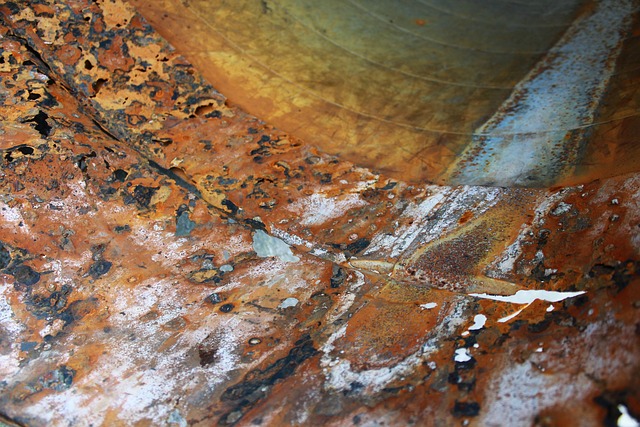
What Happens When Your Pipes Aren’t Insulated – Risks You Need to Know
When it comes to keeping your house safe and in good working condition, insulation is one of the key components. Of course, you are probably aware of the primary role insulation plays in keeping your home warm during the winter and cool during the summer. However, you may not know that insulating your pipes is just as important. And finally, we will discuss what happens when your pipes are not insulated, and the risks associated with it.
Frozen Pipes:
One of the most significant risks of uninsulated pipes is the potential for them to freeze. When temperatures drop, water inside pipes can freeze and expand, causing the pipes to burst. The ruptured pipes can cause significant water damage and become an expensive repair.
Heat Loss:
Insulation is not only important for keeping cold air out during the winter, but also for ensuring that the hot water in your pipes stays warm. When pipes are not insulated, heat can escape the pipes, causing you to waste energy and money. Hence, insulating pipes can ensure that hot water remains hot, allowing you to use it right from the tap instead of waiting for the water to heat up.
Mold Growth:
Another significant problem arising from uninsulated pipes is mold growth. Moisture tends to accumulate wherever water or condensation is present, and uninsulated pipes are the prime location for mold formation. The accumulation of mold can lead to respiratory problems, allergies, and even asthma attacks in some cases.
Corroded Pipes:
Another risk when pipes are not insulated is corrosion. Moisture and air can seep into non-insulated pipes, causing rust and pipe corrosion. Corroded pipes can lead to significant leaks, which can impact your home’s structural stability. Repairs in such cases are often costly and may require professional expertise.
Increased Energy Bills:
Insulation in pipes plays an essential role in retaining the right temperatures for water and preventing heat loss. That means that insulating pipes can ensure that energy consumption is optimized, leading to reduced energy bills.
As you can see, there are several risks associated with uninsulated pipes, including frozen pipes, heat loss, mold growth, corroded pipes, and an increased cost of energy. To avoid these issues and keep your home safe and energy-efficient, it is essential to inspect your pipes regularly and insulate them accordingly. It is always important to consult a professional for pipe insulation advice or plumbing repairs, rather than trying to fix the issue yourself and risking further damage. Remember, a little insulation now can save you money and frustration in the long run!
In Conclusion
Pipe insulation is a cost-effective and easy-to-install method of preventing frozen pipes and reducing heat loss. Make sure to choose the right type of insulation for your needs and install it correctly to ensure your pipes remain warm and functioning correctly. If you need assistance or have any questions about pipe insulation, reach out to a professional plumber today. Stay warm and save money this winter with pipe insulation.

MD Sewer and Plumbing Service
If you haven’t gotten your pipes insulated, MD Sewer and Plumbing is happy to serve you! Call or go online and fill out the form for a free estimate!

